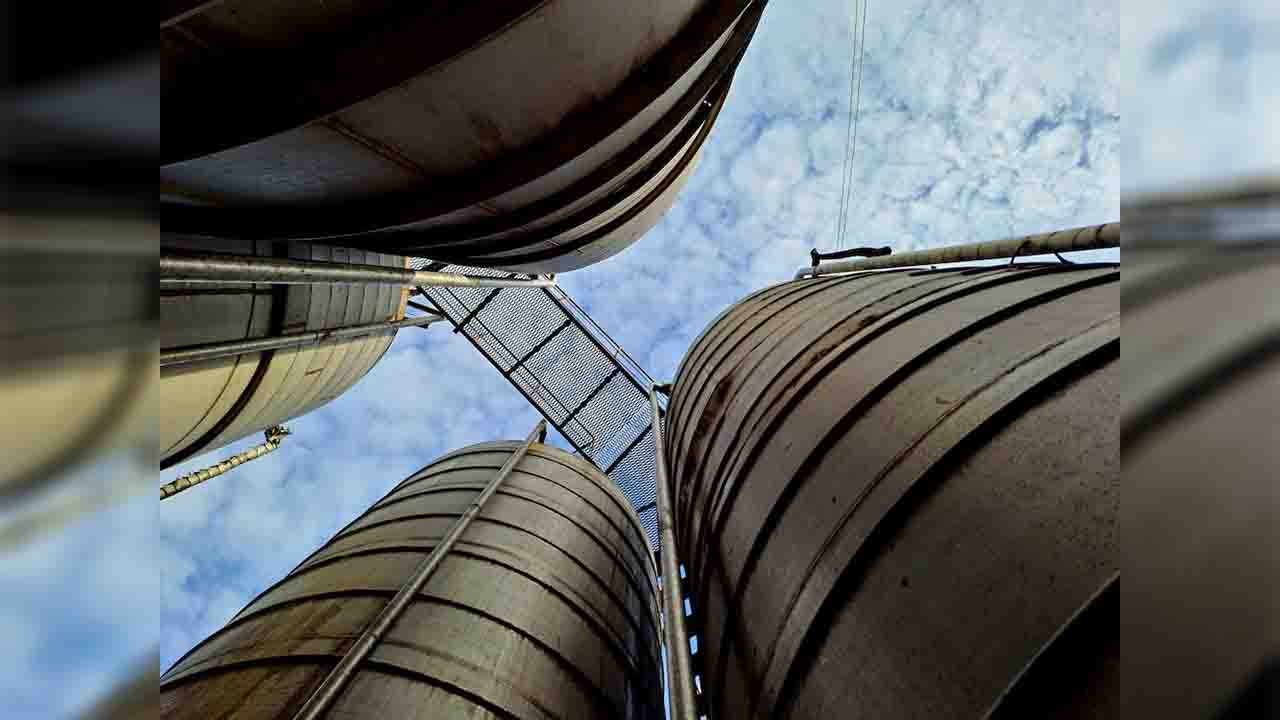Nigeria ( Common Wealth) _ Nigeria’s four oil refineries are expected to be operating by the end of next year, according to the country’s new oil minister, with the southern Port Harcourt plant expected to begin operations as early as December.
The government announced last year that the Port Harcourt refinery would begin processing oil at the end of 2022. Despite this, successive oil ministers and NNPC Ltd executives have launched a series of failed plans to restart, rebuild, or expand the refineries. Heineken Lokpobiri, Nigeria’s minister of state for petroleum, reviewed ongoing rehabilitation at the two-unit 210,000 Port Harcourt refinery.
According to what we’ve seen here today, the Port Harcourt refinery will be operational by the end of the year, and two more facilities in Warri and Kaduna will begin processing crude between the first quarter and the end of 2024. “Our goal… is to ensure that Nigeria stops importing fuel in the next few years,” Lokpobiri added.
Nigeria, Africa’s largest oil producer, imports nearly all of its refined petroleum because to insufficient capacity and poor maintenance.
Four state-owned dilapidated refineries with a combined capacity of 4450,000 barrels per day have been shut down for years, including the 110,000 barrel Kaduna facility in the north and three units in the oil-rich Niger delta, including the 125,000 barrel Warri refinery.
After Italy’s Tecnimont was given the contract to complete the work in 2021, the Port Harcourt refinery is undertaking a $1.5 billion renovation. According to the oil ministry, the refurbishment will take 44 months to complete.
The country is now banking on a 650,000 barrels per day refinery being built by Aliko Dangote, Africa’s richest man, to stop petroleum imports. Nigeria is Africa’s second largest producer of oil and gas.Crude oil from the Niger Delta basin is classified as light or comparably heavy; the lighter has a gravity of roughly 36, while the heavier has a gravity of 20-25. Both are paraffinic and low in sulfur.
Since 1960, Nigeria’s economy and budget have been substantially supported by income and revenues generated by the petroleum industry. According to statistics as of February 2021, the Nigerian oil sector accounts for around 9% of the country’s total GDP.Nigeria is Africa’s second largest producer of oil and gas, and a major exporter of crude oil and petroleum products to the United States of America. Nigeria shipped approximately one million barrels per day to the United States in 2010, accounting for 9% of total US crude oil and petroleum product imports and more than 40% of Nigeria exports.
The Petroleum Industry Bill arose from the necessity for comprehensive reforms in the petroleum industry, ease of doing business, and development of local content in the industry.
Oil and gas exports contributed for more than 98% of export earnings and around 83% of federal government revenue in 2000, as well as more than 14% of GDP. It also accounts for 95% of foreign exchange earnings and around 65% of government budgetary income.
The United States Energy Information Administration (EIA) estimates Nigeria’s known oil reserves at between 16 and 22 billion barrels (2.5109 and 3.5109 m3), however some sources suggest as much as 35.3 billion barrels (5.61109 m3). Nigeria is the tenth most petroleum-rich country in the world, and by far the most prosperous in Africa, because to its reserves. Its crude oil production averaged roughly 2,200,000 barrels (350,000 m3) per day in mid-2001. Based on an average benchmark oil price of $85-$90 per barrel, the industry is likely to remain profitable.
Almost all of the country’s primary reserves are located near the Niger River delta, but offshore rigs are also visible in the well-endowed coastline region. Nigeria is one of the few big oil-producing countries that can still increase its oil output. Unlike the majority of the other OPEC members.
The primary cause for Nigeria’s relative inefficiency is OPEC’s output limits, which aim to keep prices stable on the international market. More recently, production has been occasionally delayed by protests by Niger Delta residents who believe they are being exploited.








